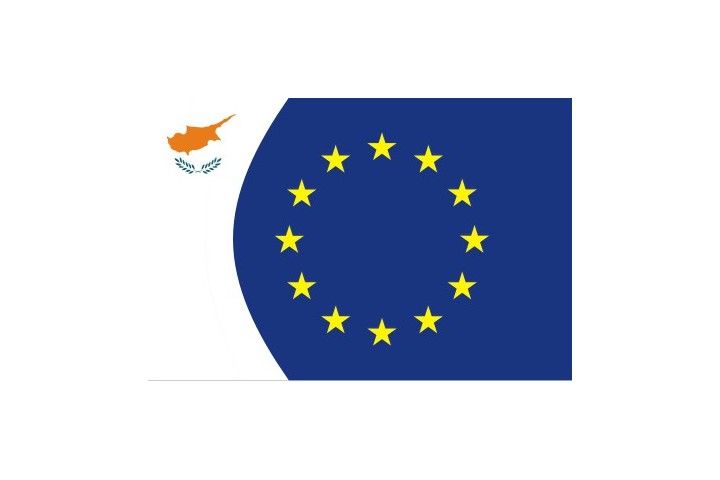- BY Claire Physsas

No Removals to Cyprus
THANKS FOR READING
Older content is locked

A great deal of time and effort goes into producing the information on Free Movement, become a member of Free Movement to get unlimited access to all articles, and much, much more
TAKE FREE MOVEMENT FURTHER
By becoming a member of Free Movement, you not only support the hard-work that goes into maintaining the website, but get access to premium features;
- Single login for personal use
- FREE downloads of Free Movement ebooks
- Access to all Free Movement blog content
- Access to all our online training materials
- Access to our busy forums
- Downloadable CPD certificates
 The Court of Appeal in the UK has very recently granted stays preventing the removal of asylum-seekers to Cyprus under Dublin II. The proceedings have been stayed pending the appeal against the judgment in EM (Eritrea) & Ors v SSHD [2012] EWCA Civ 1336.
The Court of Appeal in the UK has very recently granted stays preventing the removal of asylum-seekers to Cyprus under Dublin II. The proceedings have been stayed pending the appeal against the judgment in EM (Eritrea) & Ors v SSHD [2012] EWCA Civ 1336.
The cases are:
– MD (Guinea) v SSHD C4/2012/3166 (Order granted on the 7th March 2013)
– ZJ (Iran) v SSHD C4/2012/2988 (Order dated the 8th March 2013)
– FJ (Iran) v SSHD C4/2012/3361 (Order dated the 14th March 2013)
EM concerns Dublin returns to Italy. In that case, the appellants challenged their removal to Italy on the basis that the conditions there for asylum-seekers and refugees breached Article 3 of the European Convention on Human Rights (prohibition of torture).
The Court of Appeal dismissed the appellants’ challenge because they had not shown there were systemic deficiencies in the conditions for asylum-seekers and refugees in Italy. It was held that:
62. [T]he sole ground on which a second state is required to exercise its power under article 3(2) Regulation 343/2003 to entertain a re-application for asylum or humanitarian protection, and to refrain from returning the applicant to the state of first arrival, is that the source of risk to the applicant is a systemic deficiency, known to the former, in the latter’s asylum or reception procedures. Short of this, even powerful evidence of individual risk is of no avail.
The judgment in EM impacts upon Dublin cases generally. This is because it confirmed that the test in challenging removal to a Dublin State is to show systemic deficiencies in the general conditions, not ‘simply’ a real risk of a breach of ECHR rights.
Further, individual risk is insufficient to challenge removal.
The Court considered that this was the test set out by the Court of Justice of the European Union (“CJEU”) in NS (European Union law) [2011] EUECJ C-411/10.
The Court proceeded to grant a stay on the removal of the appellants in that case pending their applications for permission to appeal to the Supreme Court.
In making the Order, the Court seemed to doubt the correctness of its own judgment by stating that:
[I]t should be for the Supreme Court to decide whether to grant permission to appeal, but this Court recognises it as problematical that NS and MSS may pull in different directions and that, whilst NS binds the Court, so does the EU principle of not undercutting ECHR rights such as those articulated in MSS.
NS and MSS v Belgium and Greece – 30696/09 [2011] ECHR 108 both concerned the removal of asylum-seekers to Greece under Dublin II.
In MSS the European Court of Human Rights found that the conditions for asylum-seekers in Greece breached Article 3 ECHR. In turn, Belgium had violated Article 3 by returning an asylum-seeker to Greece under Dublin II. The Court held:
[T]he existence of domestic laws and accession to international treaties guaranteeing respect for fundamental rights in principle are not in themselves sufficient to ensure adequate protection against the risk of ill-treatment where, as in the present case, reliable sources have reported practices resorted to or tolerated by the authorities which are manifestly contrary to the principles of the Convention” (§35).
NS was a referral to the CJEU by the Court of Appeal on points of law regarding the application of the Dublin II Regulation. The Court endorsed the approach in MSS and held:
[I]f there are substantial grounds for believing that there are systemic flaws in the asylum procedure and reception conditions for asylum applicants in the Member State responsible, resulting in inhuman or degrading treatment, within the meaning of Article 4 of the Charter, of asylum seekers transferred to the territory of that Member State, the transfer would be incompatible with that provision” (§86).
Permission to appeal was granted by the Supreme Court in EM on the 6th March 2013.
The Court of Appeal’s recent stays in the Cyprus cases shows that EM has implications for Dublin cases generally and not just for returns to Italy.
In the Cyprus cases, an Article 3 ECHR challenge is made. Removal is also challenged under Article 5 ECHR (right to liberty and security) and Article 13 (right to an effective remedy.
Clarification of the test by the Supreme Court would shed light on the test for other ECHR rights.
A further issue is whether the systemic deficiencies test (if correct) applies where there is an individual risk to the asylum-seeker, for instance a suicide risk.
The High Court has previously decided that there is no risk of refoulement and/or breach of Article 3 ECHR rights for asylum-seekers in Cyprus, in . However the applicants are relying on fresh evidence, which post-dates that judgment.
We are here dealing with a fast developing area of law, which is in part a response to the changing fortunes of the European Union.
This was the observation of Jackson LJ in AB (9th January 2013), which concerned Dublin returns to Italy. The Court of Appeal in that case has granted permission to appeal against an order of the High Court refusing to grant stays pending EM.
In the Cyprus cases, the SSHD has applied to the Court of Appeal for the Orders to be discharged.
Claire Physsas is Counsel for the Applicants, instructed by Duncan Lewis Solicitors.
SHARE

